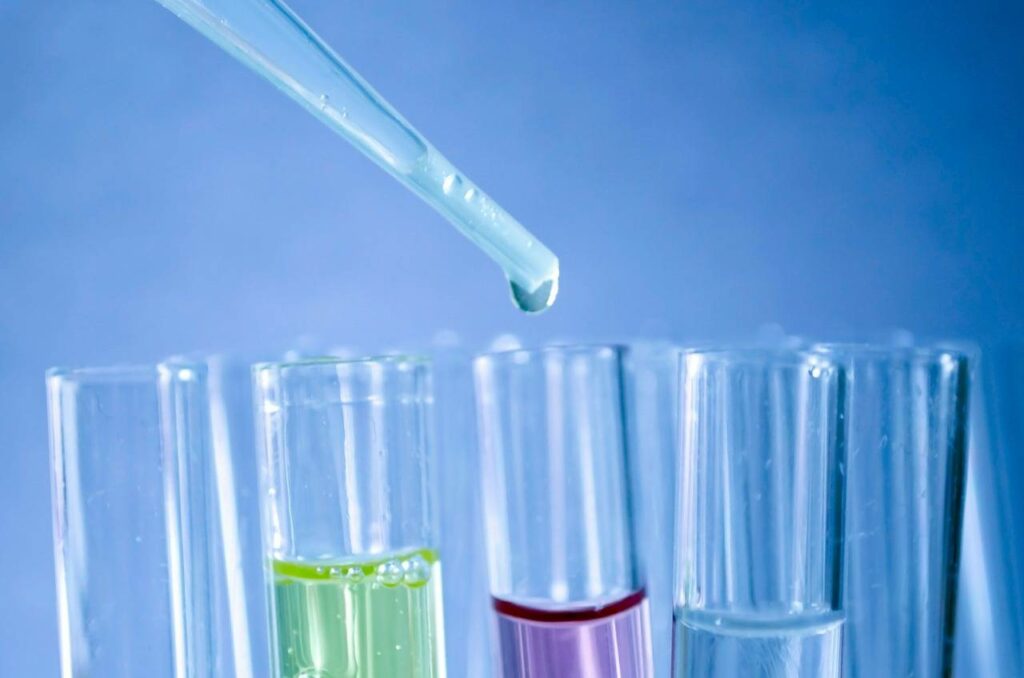This article presents a full list of Quest Diagnostics FAQs.Quest Diagnostics is a full-service medical testing business, providing drug testing, testing for toxicology, disease screening, and monitoring. Testing samples can be collected at any of over 8,000 locations nationwide, or on-site at a company’s place of business.
Quest Diagnostics is a full-service medical testing business, providing drug testing, testing for toxicology, disease screening, and monitoring. Testing samples can be collected at any of over 8,000 locations nationwide, or on-site at a company’s place of business.
Quest Diagnostics has dozens of FAQs pages for healthcare workers, companies, and patients. The topics span everything from physician questions about lab tests to billing, marketing, drug testing, app info, and more.
We’ve collected information from Quest Diagnostics’ many FAQs pages here in one handy reference.
Quest Diagnostic FAQ
The frequently asked questions about Quest Diagnostics below are broken out into three main sections: FAQs for healthcare workers and physicians , marketing FAQs, and patient FAQs to help test subjects understand the process.
1. FAQ for Healthcare Workers
The Quest Diagnostics FAQs in this section include questions about individual tests (there are over 130 tests total, each with its own FAQ page), questions about urine drug tests, and questions about testing for common synthetic drugs. They’re geared toward company owners and healthcare workers. We’ll get to questions from companies or patients in a minute.
FAQ for All Tests
Quest Diagnostics provides a separate FAQ page for each of their 130+ tests. There are different FAQs for each genetic marker test, autoimmune test, drug test, chromosome analysis, and disease screen. There are also separate FAQs for toxicology monitoring tests, cancer screenings, hepatitis, HIV, and herpes tests.
Each lab test FAQ answers why the test is important, how it’s conducted, and suggests alternative tests. There’s also detailed information for physicians on how to interpret the test results.
The FAQs are organized alphabetically in a convenient menu that makes it easy for healthcare workers and physicians to find info on any particular test.
To view the comprehensive Quest Diagnostics Lab Test FAQ, click here.
FAQ for Urine Tests
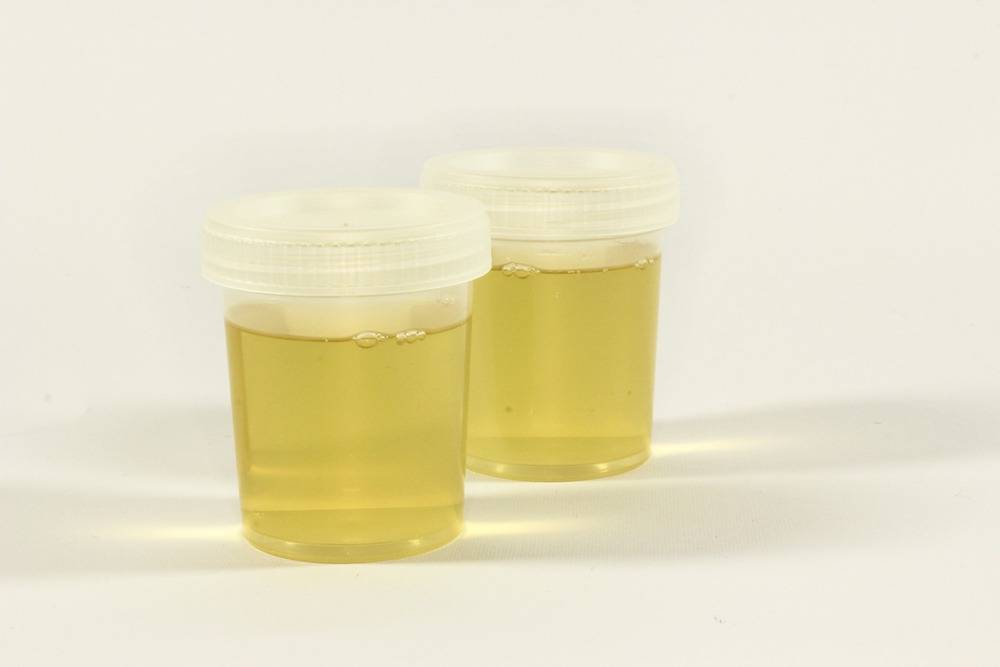
This section answers frequently asked questions for general urine test issues, plus specifics like the types of drugs a urine test can detect. It also covers timelines, collection methods, and location info.
How is Quest Diagnostics urine testing different?
Quest Diagnostics maintains an extensive network of national collection sites. Lab technicians receive regular training and testing to ensure Six Sigma quality standards.
Why is urine testing so popular?
Urine testing is more customizable and flexible than other methods. That makes it a good fit for any of the hundreds of possible combinations of illicit drugs.
What situations do urine tests work for?
Urine testing can work with almost any situation, including random testing, pre-employment, post-accident, reasonable suspicion, return-to-duty, random, and follow-up testing.
What drugs can a urine test detect?
Urine tests performed by Quest Diagnostics can detect barbiturates, amphetamines, cocaine, benzodiazepines, MDMA (Ecstasy), marijuana, opiates, methadone, PCP, oxycodone, synthetic cannabinoids (Spice/K2) and synthetic stimulants like “Bath Salts.” Prescription drugs and steroids can also be detected.
How long is a urine test effective after drug use?
Urine testing can detect drug use within 24 to 72 hours.
How long does it take to get results from a urine test?
Results from each urine test are available in 24 hours if negative, or up to 72 hours if positive.
Can patients beat a urine test?
Urine testing isn’t foolproof. It’s possible for test subjects to adulterate a urine test with certain substances, but Quest Diagnostics can test for adulterants and other test-integrity red flags.
How is the urine collected during a drug test?
Quest Diagnostics collects 30 mL to 45 mL of urine. The specimen and paperwork are sent to the lab for testing.
How Does Quest Diagnostics train collectors?
Quest Diagnostics follows urine collection training protocols established for the Department of Transportation, including instructional videos, mock collections, and written testing. Quest also maintains standards through anonymous mystery shopper programs.
Where are Quest Diagnostics urine tests conducted?
Quest has a network of 8,000+ collection sites at convenient locations around the country.
Are appointments required for drug urine tests?
Appointments aren’t required but are recommended. Donors can schedule appointments on the scheduling page at QuestDiagnostics.com.
FAQ for Synthetic Drug Testing
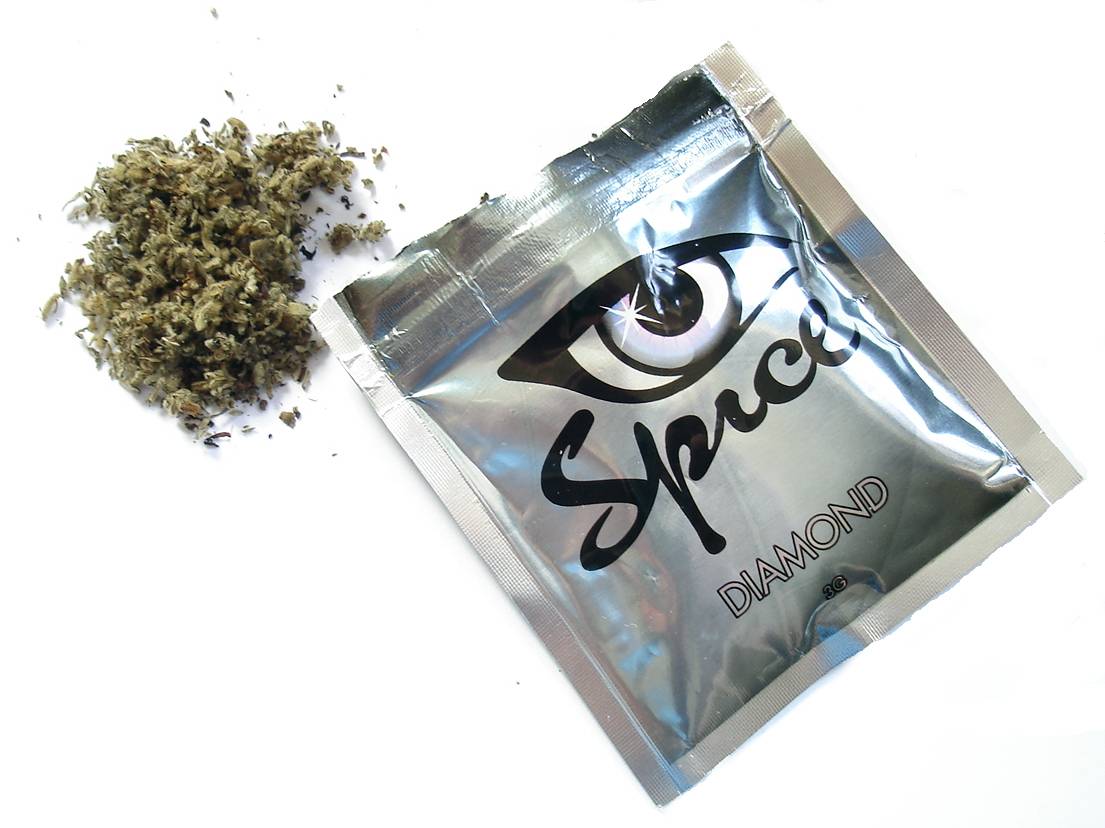
This section covers frequently asked questions about testing for common synthetic drugs, including cannabinoids and synthetic stimulants like “bath salts.” It lists the specific compounds Quest Diagnostics tests for, as well as answers to other questions.
What are synthetic drugs or designer drugs?
Synthetic drugs or designer drugs don’t come from controlled plant sources like cocaine and marijuana do. Instead, they’re lab-created in an attempt to mimic those drugs. They include synthetic marijuana and synthetic stimulants like “bath salts.” Illegal drug manufacturers constantly alter their formulae to try to evade drug tests. Synthetic marijuana can be up to 50 times more potent than its natural counterpart.
How does Quest Diagnostics test for synthetic drugs?
Quest Diagnostics works with the oil industry and several government bodies to refine the list of tested-for compounds. Next, the company works with employers to test employees for the offending drugs.
Which synthetic drugs does Quest Diagnostics detect?
Quest tests for synthetic cannabinoids by detecting these compounds: AB-FUBINACA, AB-CHMINACA, ADB- PINACA, AB-PINACA/5F-AB-PINACA, UR -144/ XLR11, ADBICA, BB-22, AKB- 48 (APINACA), JWH-073, JWH-018/AM-2201, AND PB-22/5F-PB-22.
They also test for synthetic stimulants known as “bath salts” (and by other names) by detecting the following compounds: Butylone, alpha- PVP, Flephedrone (4-Fluoromethcathinone), Mephedrone, MDPV, Methedrone, Pentylone, Pentedrone, and Methylone.
Can a synthetic drug test be included with a standard drug test?
Because of different testing methods, a synthetic drug test must be ordered separately from a standard drug test.
2. Marketing FAQ
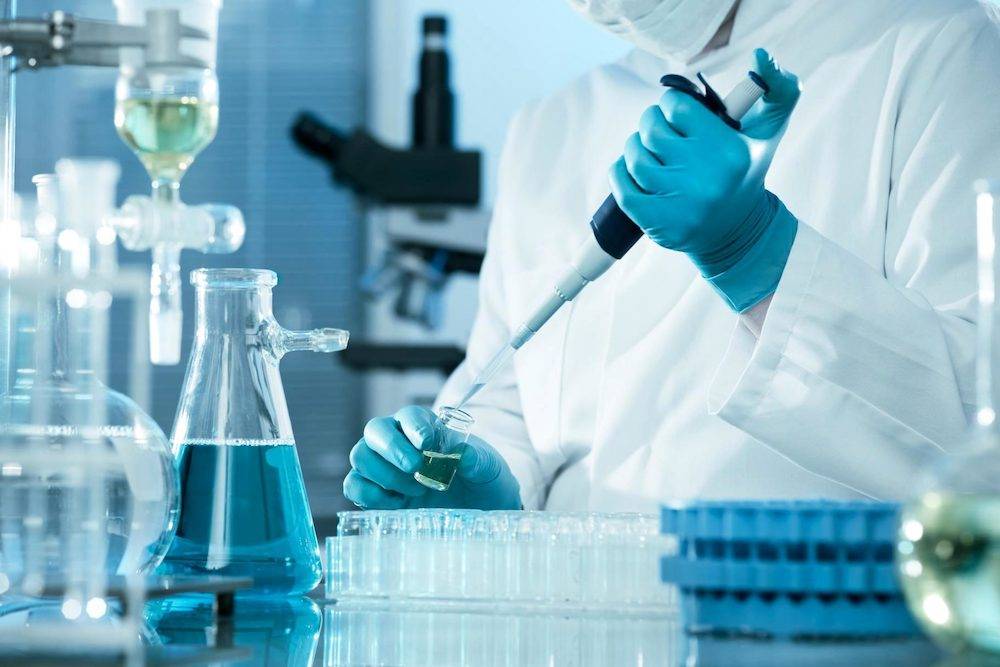
The FAQs in this section cover marketing concerns, such as reasons to use Quest, company info, and reasons to conduct urine drug tests, oral fluid drug tests, and hair sample drug tests.
How many drug test collection sites does Quest Diagnostics have?
The Quest Diagnostics network includes over 8,000 collection sites across the U.S. 1,300+ of those are run by Quest itself, with 6,000 third-party sites and 1,500 preferred sites.
Are Quest’s capabilities different from site to site?
Yes. Different sites serve different testing needs. The 1,300 sites managed by Quest Diagnostics offer the lowest prices and the most comprehensive service.
What are Quest’s 24/7 emergency collection services?
Quest Diagnostics provides round the clock collection for drug and alcohol tests for reasonable cause testing or post-accident testing.
Does Quest offer on-site collection?
Yes. Quest Diagnostics offers on-site collection for urine, oral fluid, breath alcohol, or hair samples. On-site collection should be scheduled five days in advance.
What is the Quest Diagnostics customer service phone number?
866-697-8378
Why Conduct Urine Tests?
This FAQ section answers questions about urine testing, including why to do it, why to use Quest, what drugs are tested for, and testing accuracy concerns.
Why conduct urine testing?
Urine testing is a cost-effective, legal way to screen for several illegal drugs.
Why use Quest Diagnostics?
Quest Diagnostics maintains a convenient network of 8,000+ collection centers. All lab employees undergo rigorous proficiency testing to ensure Six Sigma quality.
What’s the detection window for a urine test?
Urine tests can detect drug use within 24 to 72 hours.
What drugs are tested for?
Quest Diagnostics urine tests detect barbiturates, amphetamines, cocaine, benzodiazepines, MDMA (Ecstasy), marijuana, opiates, methadone, PCP, oxycodone, synthetic cannabinoids, and synthetic stimulants. Prescription drugs and steroids can also be detected.
Can a urine test be “beaten?”
Urine tests aren’t foolproof. That said, Quest Diagnostics can detect adulterants and other interference with urine samples, ensuring accuracy.
Why Conduct an Oral Fluid Test?
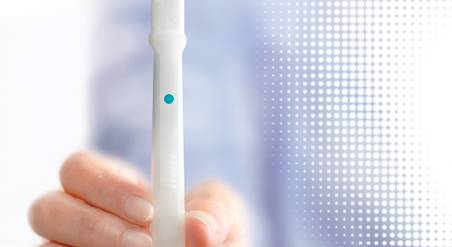
This section answers FAQs about Quest Diagnostic’s oral fluid testing, including the drugs that can be identified and the required time window.
Why do oral fluid testing?
Unlike hair and urine testing, oral fluid testing can detect drugs in the system immediately after use.
What drugs can be detected with oral-fluid testing?
Quest Diagnostics uses oral fluid to test for methamphetamines, amphetamine, opiates (morphine, codeine, hydromorphone, hydrocodone, 6-AM), PCP, marijuana, and cocaine.
What’s the detection window for oral fluid testing?
24-48 hours.
Why Conduct Hair Drug Testing?
This section covers the FAQs around hair drug testing, including its long effectiveness window of 90 days, the drugs it can detect, and the impossibility of “beating” a hair drug test.
Why do hair drug testing?
Hair drug testing can provide a drug history of up to 90 days, compared to a 24-72 hour window from other methods.
What drugs can hair testing detect?
Quest Diagnostics uses hair testing to detect methamphetamine, amphetamine, MDA, MDMA, morphine, codeine, 6-monoacetylmorphine, semi-synthetic opiates, marijuana, PCP, and cocaine.
How much hair is needed for the test?
The test requires a small, snipped lock of hair, cosmetically undetectable.
Can a hair drug test be “beaten?”
There’s no known way to beat a hair drug test.
How Much Money Can Your Practice Save with MedPro Disposal?
Your medical practice is almost certainly paying too much for medical waste disposal, thanks to an average 18% price rise in the industry every nine months. To see how much money you could save with MedPro Disposal’s rock-steady prices and reliable service, see this handy savings calculator.
3. Patient FAQ
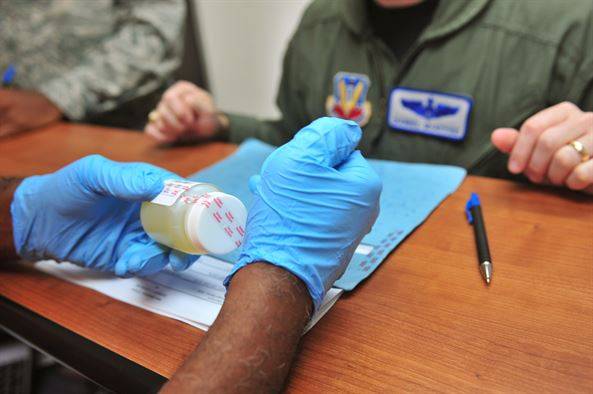
This section deals with patient FAQs, including scheduling appointments, billing, how to order lab tests, how to use Quest Diagnostic apps, and other concerns.
Why should I create an account with Quest Diagnostics?
Having an account makes it easier to schedule appointments, pay Quest bills, view invoices, update insurance information, and get lab results online.
How can I schedule an appointment with Quest Diagnostics?
Visit the Quest Diagnostics Patient Service Center to schedule an appointment
Where can I find more info on appointment scheduling with Quest Diagnostics?
See their appointment scheduling FAQs here.
Why did I get a bill from Quest Diagnostics?
Your physician ordered lab results through Quest.
Why did Quest charge me a “draw fee?”
The draw fee is for drawing a specimen at a Quest Diagnostics Patient Service Center (PSC).
Why did I get billed for additional testing?
You physician may have ordered the additional test in response to data from the first test, or for other reasons.
Can I pay my Quest invoice online?
Yes. Click here to pay a Quest bill online.
Why didn’t my insurance cover my testing?
The insurance carrier may have denied payment, or your insurance info may not have been received. Also, your copay or deductible may have come into play.
How can I get a copy of my test results?
Test results are available through the MyQuest app for Apple and Android.
Where can I find more info on the MyQuest app?
See the MyQuest FAQs page here.
How can I see more Quest Diagnostics billing info?
Visit the Quest Diagnostics billing FAQs page here.
How do I order my own lab tests?
Most state and local regulations prevent patients from ordering their own lab tests. Ask your healthcare provider to order the tests for you. Residents of Missouri and Colorado can order their own tests.
How can I order my own lab tests if I live in Missouri or Colorado?
See the Quest Direct FAQs page here for ordering your own tests in certain states.
How can I find a Quest Diagnostics testing location?
Use the Quest patient service locator on this page.
What are the hours of operation for Quest Diagnostics locations?
Click the link in the question above, then navigate to a specific location to learn its hours.
Will I need to fast before my test?
Some tests do require fasting. Ask your healthcare provider about the guidelines for your specific test.
How long will it take to get my test results?
Most test results generally come back in 24 hours, though some can take weeks. Have your healthcare provider contact you when your results are ready.
How can I remember to participate in regular tests?
Quest Diagnostics has a useful TestMinder program that reminds patients about regular testing by text, email, or phone call.
Where can I find information on biometric wellness screening?
See the Quest Diagnostics biometric wellness FAQs page here.
Conclusion
Quest Diagnostics is a popular and well-respected medical testing resource with over 8,000 collection locations nationwide. Quest conducts testing for drug screenings, diseases, general wellness, toxicology, and other purposes. The FAQs above give a good overview of the company and its services.
Find out why more and more private practices and clinics use MedPro Disposal for their biohazard waste disposal needs. MedPro’s reliable service and predictable prices can give a boost to the bottom line of any medical business. See their handy savings calculator here to find out how much you could be saving.
